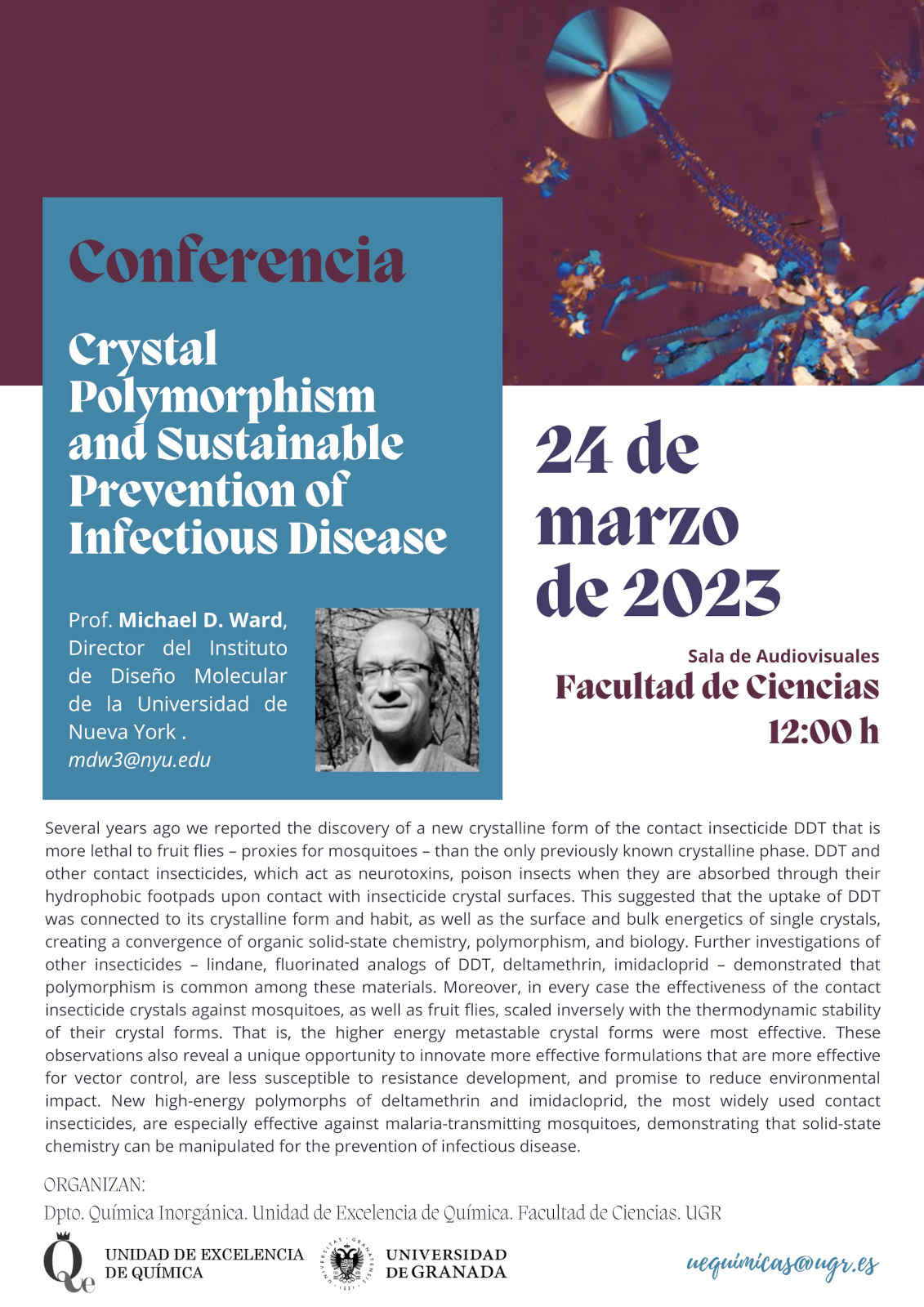Fecha: Viernes 24 de Marzo de 2023.
Hora: 12:00h.
Lugar: Sala Audiovisuales de la Facultad de Ciencias de la Universidad de Granada.
Ponente: Prof. Michael D. Ward (Director del Instituto de Diseño Molecular de la Universidad de Nueva York).
Organizan: Departamento de Química Inorgánica y Unidad de Excelencia en Química.
Several years ago we reported the discovery of a new crystalline form of the contact insecticide DDT that is more lethal to fruit flies – proxies for mosquitoes – than the only previously known crystalline phase. DDT and other contact insecticides, which act as neurotoxins, poison insects when they are absorbed through their hydrophobic footpads upon contact with insecticide crystal surfaces. This suggested that the uptake of DDT was connected to its crystalline form and habit, as well as the surface and bulk energetics of single crystals, creating a convergence of organic solid-state chemistry, polymorphism, and biology. Further investigations of other insecticides – lindane, fluorinated analogs of DDT, deltamethrin, imidacloprid – demonstrated that polymorphism is common among these materials. Moreover, in every case the effectiveness of the contact insecticide crystals against mosquitoes, as well as fruit flies, scaled inversely with the thermodynamic stability of their crystal forms. That is, the higher energy metastable crystal forms were most effective. These observations also reveal a unique opportunity to innovate more effective formulations that are more effective for vector control, are less susceptible to resistance development, and promise to reduce environmental impact. New high-energy polymorphs of deltamethrin and imidacloprid, the most widely used contact insecticides, are especially effective against malaria-transmitting mosquitoes, demonstrating that solid-state chemistry can be manipulated for the prevention of infectious disease.
Escribir un comentario
Información básica sobre protección de datos personales
Responsable: Universidad de Granada
Legitimación: La Universidad de Granada está legitimada para el tratamiento de sus datos, siendo de aplicación las bases jurídicas previstas en el art. 6.1 del RGPD que correspondan en función de la finalidad pretendida por usted en el formulario de contacto.
Finalidad: Gestionar su comunicación.
Destinatarios: No se prevén comunicaciones de datos, salvo que sea necesario para gestionar su solicitud.
Derechos: Tiene derecho a solicitar el acceso, oposición, rectificación, supresión o limitación del tratamiento de sus datos, tal y como se explica en la información adicional.
Información adicional: Puede consultar la información adicional y detallada sobre protección de datos, en función del tipo de tratamiento, en la UGR en el siguiente enlace





